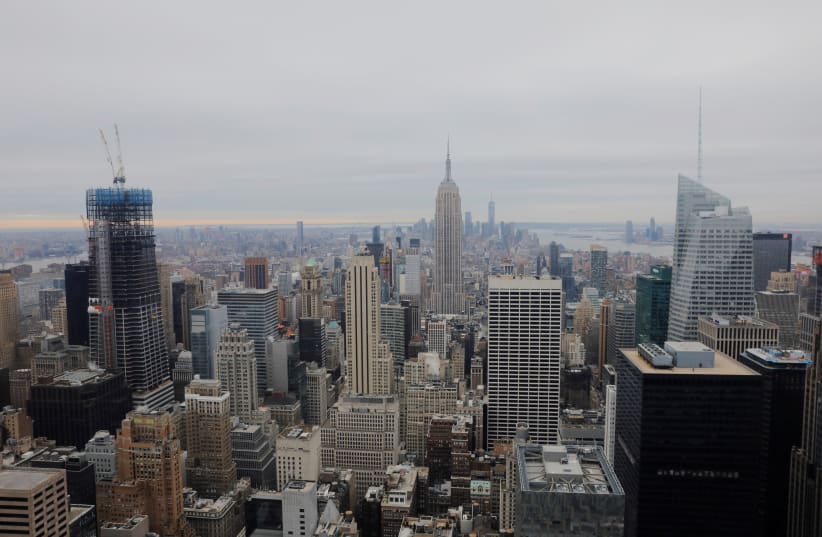Legendary New York Post reporter and columnist Steve Dunleavy, who passed away Monday at his home on Long Island at 81, will be remembered for his relentless pursuit of the story, his hard-drinking lifestyle – and his love of Israel.
An Australian who became Rupert Murdoch’s star reporter after the media mogul purchased the Post in 1976, Dunleavy was a staunch supporter of Israel. He visited the country several times, including to report on the First Gulf War in 1991 and the 1996 election.
In his final Post column before he retired in 2008, he named covering stories in Israel as one of the highlights of his career: “This company has sent me from Bogota to Baghdad, Lima to London, Kentucky to Kabul, Tampa to Tel Aviv.”
Legendary Post columnist Steve Dunleavy dead at 81 https://t.co/ClyBbJJr9E pic.twitter.com/lh9pyOjR2g
— New York Post (@nypost) June 25, 2019
His genuine feeling for Israel shined throughout his work.
In a heartfelt column about how his son Peter was going overseas for the military just after the 9/11 terror attacks, he wrote: “I’m sick and tired of all this crap about suspending hostilities over Ramadan. Nobody suspended hostilities when Israel was attacked during Yom Kippur.”
When the First Gulf War broke out in 1991, Dunleavy hopped on a plane to Israel.
Dunleavy was a second-generation journalist who quit school at 14 to go into the newspaper business.
After a stellar career in the Australian press, he came to the US and became the embodiment of the Aussie takeover of the once staunchly liberal New York Post.
During his first summer in New York, a serial killer who came to be known as the Son of Sam terrorized the city, stalking couples in lovers’ lanes, killing six people and wounding eight.
This story was tailor-made for Dunleavy, who ran with it, getting down and dirty as he pulled stunts like dressing in scrubs to pose as an orderly and interviewing a victim’s family at the hospital.
In 1986, he moved from the Post to the pioneering tabloid television show, A Current Affair, working in TV for a number of years until he returned to the paper as a columnist.
The character of the rabid Australian reporter Wayne Gale, played by Robert Downey Jr. in Oliver Stone’s controversial 1994 film Natural Born Killers, was clearly inspired by Dunleavy.
Oron Uri, son of the late Israeli journalist and New York Post Israel correspondent Uri Dan, remembers spending time with Dunleavy in Tel Aviv in 1996, when he came to cover the first election following the assassination of prime minister Yitzhak Rabin.
Dan was away, remembers his son, “so I got the assignment to show Steve around.”
On one memorable day, Dunleavy was scheduled to interview Ariel Sharon, then a member of Knesset.
“We were supposed to meet him in his office around five or six, on Ibn Gabirol Street,” Uri recalled. “There was a bar that was an ‘in’ place back then nearby. I remember sitting and drinking with Dunleavy there at four. He kept saying, ‘Let’s have another round.’
“I was a young guy, I used to drink sometimes, but I was really wasted. He was fine. When we went to meet Sharon, I was dizzy, but Steve did a great interview,” he said. “And then we went back to the bar, and he kept drinking… It was an amazing four days. I remember spending time drinking, eating, but mostly drinking.”
Uri went on to say that the drinking “didn’t matter, he would send his columns to New York, he always did his work. And he was great at getting people to open up, to spill their guts to him. With his accent, Israelis didn’t always understand what he meant, but he would charm them. It was really fun, he had so many great stories and so much passion for the work, for writing and reporting.”
In 1988, when I left the Post – where I had worked for several years as a reporter – to move to Israel, Dunleavy was encouraging. “I envy you,” he said. “There’s no place like it in the world.”
